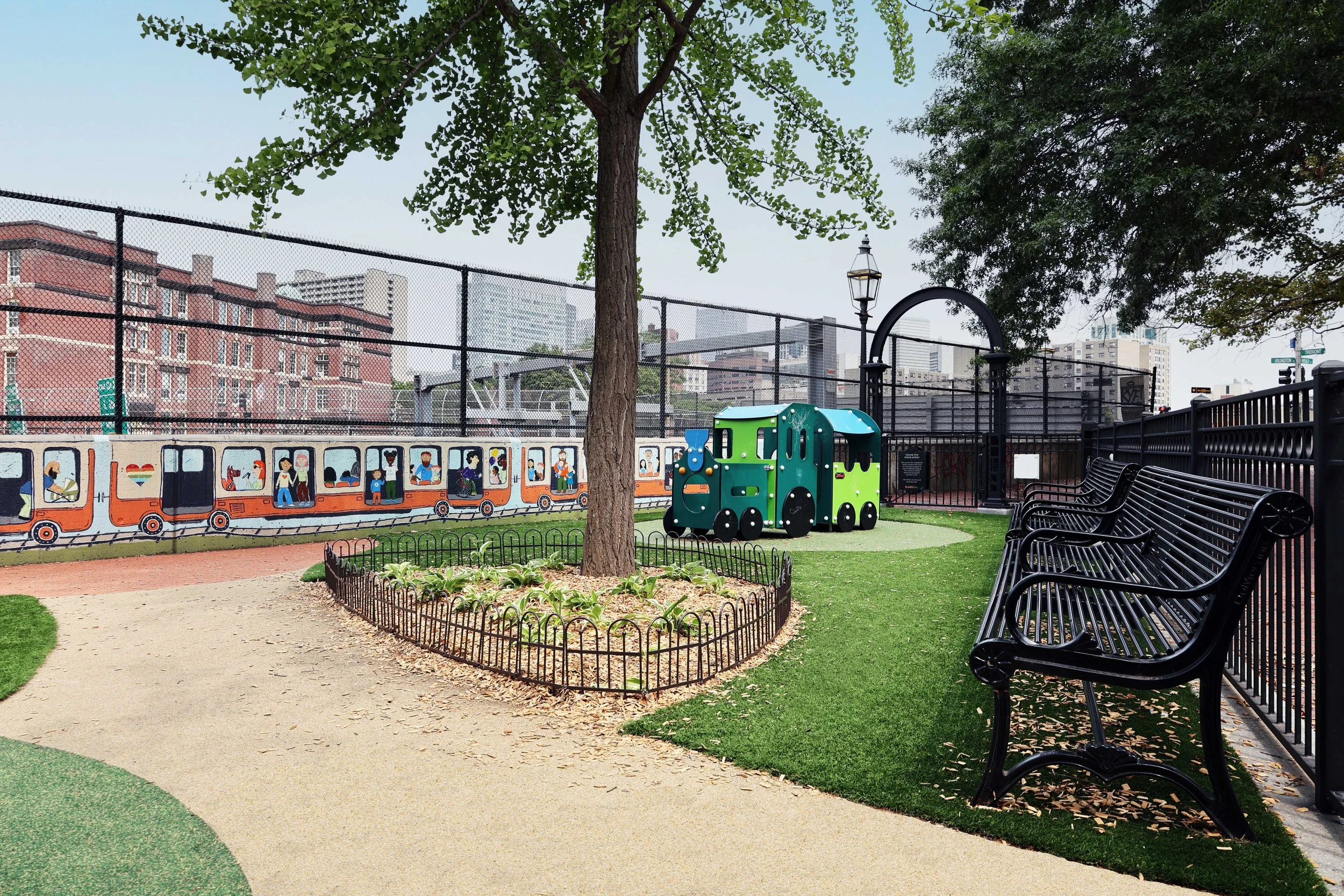The Nature Nook.
boston nature center
The “Nature Nook” is nearly one acre of natural play space at the Boston Nature Center, an urban nature sanctuary of the Massachusetts Audubon Society, located within Boston’s densely-populated Roxbury neighborhood. The Nature Nook space provides opportunities for children and families to connect and experience the outdoors.
While the sanctuary includes miles of trails through the nature sanctuary, the goal of the “Nature Nook” was to provide urban families an “introduction” to nature. The Nature Nook includes a dry-stream bed where children can experiment with water, a natural building area for building with sticks and branches, a play hill, a sand play area, a boardwalk loop through a native grove of Staghorn Sumac trees, a fallen tree climbing log, a stage, and a gardening area , all set within the natural woodland environment. The Nature Nook serves all-aged children, and is also the daily play space for the Center’s nature-based preschool program, a destination for school field trips for school children from Boston and the surrounding towns, and offers a robust summer camp program.
The Nature Nook is one of 30 national projects developed through and endorsed by the National Forum on Children and Nature.
*Project completed as studioMLA Architects prior to acquisition by Ashley McGraw Architects

































